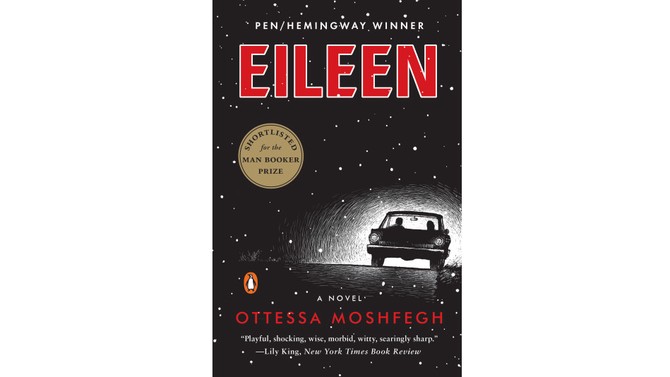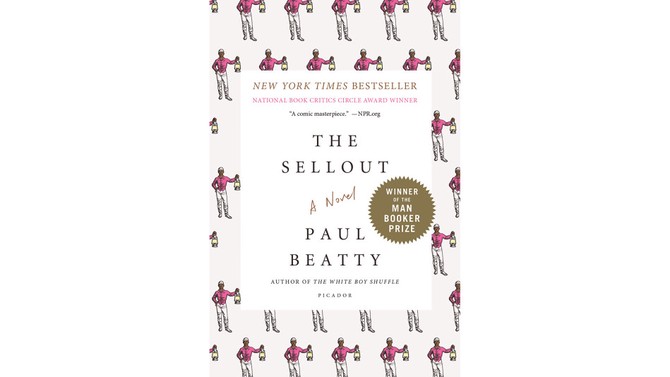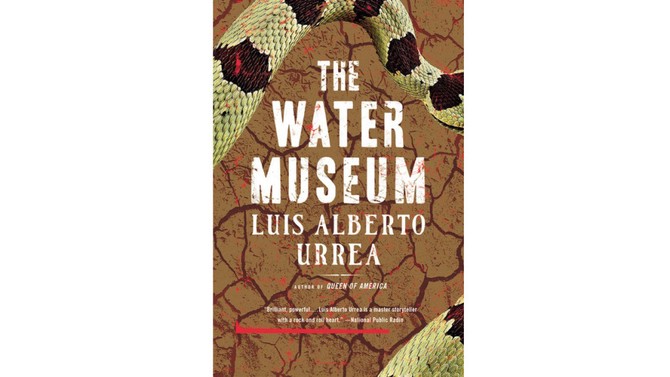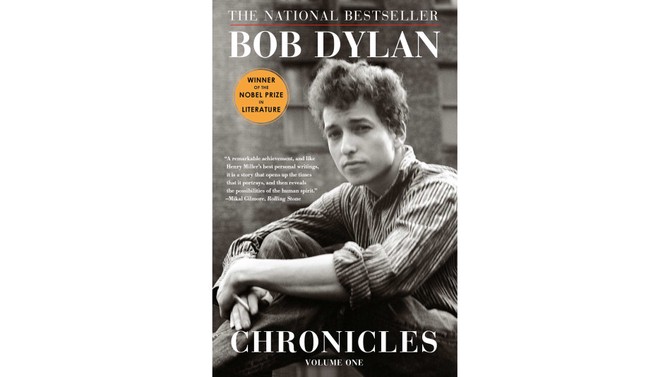Award-Winning Books of 2016
'Tis the season for gold stickers on fresh book covers. Here's our lowdown on the best of the best.
By Mark Athitakis

By Colson Whitehead
432 pages; Doubleday
Yes, this book was selected for Oprah's Book Club. However, Colson Whitehead's sixth novel is also this year's winner in fiction of the National Book Award (presented by the National Book Foundation) and a finalist for the Kirkus Prize (presented by Kirkus Reviews magazine). In this chilling, unforgettable novel, the Underground Railroad—the historical network of safe houses that helped slaves escape north before the Civil War—is an actual railroad. Riding these subterranean rails is Cora, a headstrong slave determined to find her freedom and uncover the fate of her disappeared mother. What follows is a surreal adventure, complete with harrowing eugenics experiments and lynchings, wild escapes from danger, and unlikely alliances. Whitehead's straightforward style blurs the line between fact and fiction when it comes to the history of slavery, but he's located some essential truths in the process, delivering a powerful allegory for today's racial divisions.
432 pages; Doubleday
Yes, this book was selected for Oprah's Book Club. However, Colson Whitehead's sixth novel is also this year's winner in fiction of the National Book Award (presented by the National Book Foundation) and a finalist for the Kirkus Prize (presented by Kirkus Reviews magazine). In this chilling, unforgettable novel, the Underground Railroad—the historical network of safe houses that helped slaves escape north before the Civil War—is an actual railroad. Riding these subterranean rails is Cora, a headstrong slave determined to find her freedom and uncover the fate of her disappeared mother. What follows is a surreal adventure, complete with harrowing eugenics experiments and lynchings, wild escapes from danger, and unlikely alliances. Whitehead's straightforward style blurs the line between fact and fiction when it comes to the history of slavery, but he's located some essential truths in the process, delivering a powerful allegory for today's racial divisions.

By Viet Thanh Nguyen
384 pages; Grove Press
Nguyen's astonishing debut novel is a deep dive into the mind of a North Vietnamese army captain serving as a double agent after the fall of Saigon. The Sympathizer has all the smart spy intrigue that appeals to devotees of John le Carré and other masters of the secret-agent novel. But Nguyen ranges into more profound territory as his narrator moves through Los Angeles, reporting back to his North Vietnamese superiors. The book is richly funny—particularly the unnamed narrator's farcical experience on the set of an Apocalypse Now–type movie—and enriched by its understanding of the people who are directly impacted by war and espionage. ("No one asks poor people if they want war. Nor had anyone asked these poor people if they wanted to die of thirst and exposure on the coastal sea, or if they wanted to be robbed and raped by their own soldiers.") The Sympathizer won the Pulitzer Prize this year for its rare grace and power, but it's also a reminder that the legacy of a war from a generation past has not gone away.
384 pages; Grove Press
Nguyen's astonishing debut novel is a deep dive into the mind of a North Vietnamese army captain serving as a double agent after the fall of Saigon. The Sympathizer has all the smart spy intrigue that appeals to devotees of John le Carré and other masters of the secret-agent novel. But Nguyen ranges into more profound territory as his narrator moves through Los Angeles, reporting back to his North Vietnamese superiors. The book is richly funny—particularly the unnamed narrator's farcical experience on the set of an Apocalypse Now–type movie—and enriched by its understanding of the people who are directly impacted by war and espionage. ("No one asks poor people if they want war. Nor had anyone asked these poor people if they wanted to die of thirst and exposure on the coastal sea, or if they wanted to be robbed and raped by their own soldiers.") The Sympathizer won the Pulitzer Prize this year for its rare grace and power, but it's also a reminder that the legacy of a war from a generation past has not gone away.

By Ottessa Moshfegh
272 pages; Penguin
The title character of Eileen could've walked straight out of one of Patricia Highsmith's moody noirs or Alfred Hitchcock's suspense films. And like those masters, Moshfegh has a knack for keeping you guessing. Everything about Eileen's life suggests entrapment, from the house where she lives with her moody, hard-drinking father to her day job at a prison. But while she's nursing dark, near-suicidal thoughts ("People died all the time. Why couldn't I?"), a glimmer of light comes into her life in the form of a new co-worker—setting in motion a crime story that is at once seductive and provocative. Eileen won the PEN/Hemingway Award for a debut work of fiction, and it's not hard to see why: Moshfegh has a superb command of language and tone, elevating its downbeat story by drawing us deep into turmoil of a young woman desperate to break free of her small-town life.
272 pages; Penguin
The title character of Eileen could've walked straight out of one of Patricia Highsmith's moody noirs or Alfred Hitchcock's suspense films. And like those masters, Moshfegh has a knack for keeping you guessing. Everything about Eileen's life suggests entrapment, from the house where she lives with her moody, hard-drinking father to her day job at a prison. But while she's nursing dark, near-suicidal thoughts ("People died all the time. Why couldn't I?"), a glimmer of light comes into her life in the form of a new co-worker—setting in motion a crime story that is at once seductive and provocative. Eileen won the PEN/Hemingway Award for a debut work of fiction, and it's not hard to see why: Moshfegh has a superb command of language and tone, elevating its downbeat story by drawing us deep into turmoil of a young woman desperate to break free of her small-town life.

By Paul Beatty
304 pages; Picador
Beatty's outrageous fourth novel, the winner of the Man Booker Prize and the National Book Critics Circle Award for fiction, makes clear from its opening pages that it's not going to play nice with its themes of unity and diversity: Its narrator stands before the Supreme Court accused of "everything from desecration of the Homeland to conspiracy to upset the apple cart just when things were going so well." In the pages that follow, he unleashes an unsparing critique of American race relations. The black narrator's "crime," in fact, is repossessing a parcel of California land to reinstate slavery and segregation, and his absurd actions shed light on bigotry even while Beatty's prose makes you laugh with its sheer audacity. Last year, our reviewer called it "a work of a genius, a satirical opus on race in 21st-century America," and it's destined to be the funniest and most provocative work of fiction on the subject for years to come.
304 pages; Picador
Beatty's outrageous fourth novel, the winner of the Man Booker Prize and the National Book Critics Circle Award for fiction, makes clear from its opening pages that it's not going to play nice with its themes of unity and diversity: Its narrator stands before the Supreme Court accused of "everything from desecration of the Homeland to conspiracy to upset the apple cart just when things were going so well." In the pages that follow, he unleashes an unsparing critique of American race relations. The black narrator's "crime," in fact, is repossessing a parcel of California land to reinstate slavery and segregation, and his absurd actions shed light on bigotry even while Beatty's prose makes you laugh with its sheer audacity. Last year, our reviewer called it "a work of a genius, a satirical opus on race in 21st-century America," and it's destined to be the funniest and most provocative work of fiction on the subject for years to come.

By Luis Alberto Urrea
272 pages; Back Bay Books
Urrea is a master of Dickensian novels that capture the difficult lives of people shuttling between the United States and Mexico. This story collection, a finalist for the PEN/Faulkner Award for Fiction, is more intimate, with quick glimpses into the culture clashes that transform lives across the border. In one story, a man labors to escape the barrio only be roped back into a criminal scheme; the hero of another has to tread carefully when he falls for the daughter of a drug kingpin. Urrea writes about these people with equal degrees of empathy and humor, and conjures up exquisite descriptions of the peculiar landscapes, from Iowa to the Rocky Mountains to a Mexican river thick with clutter: "a green DeSoto with its lights on, a washing machine with a religious statue in it as though the saint were piloting a circular boat, a blond wig that looked like a giant squid, a mysterious star-shaped object barely visible under the surface."
272 pages; Back Bay Books
Urrea is a master of Dickensian novels that capture the difficult lives of people shuttling between the United States and Mexico. This story collection, a finalist for the PEN/Faulkner Award for Fiction, is more intimate, with quick glimpses into the culture clashes that transform lives across the border. In one story, a man labors to escape the barrio only be roped back into a criminal scheme; the hero of another has to tread carefully when he falls for the daughter of a drug kingpin. Urrea writes about these people with equal degrees of empathy and humor, and conjures up exquisite descriptions of the peculiar landscapes, from Iowa to the Rocky Mountains to a Mexican river thick with clutter: "a green DeSoto with its lights on, a washing machine with a religious statue in it as though the saint were piloting a circular boat, a blond wig that looked like a giant squid, a mysterious star-shaped object barely visible under the surface."

By Maggie Nelson
160 pages; Graywolf Press
Nelson's brief but intellectually searching memoir—it won the National Book Critics Circle Award for criticism—is primarily a love story. A few years ago, her partner, Harry Dodge, who claims no fixed sexual identity, was undergoing testosterone injections while she herself was pregnant. It was a time she calls "the summer of our changing bodies." There is nothing about these transformations she's afraid to question: What is it about the desire to be a mother? What is motherhood? What gender issues are at play in both her and Harry's lives, and can they be overcome? Nelson's questioning spirit puts her in the same tradition of Susan Sontag, who could read the hidden codes in just about every cultural act. But though the The Argonauts is smart, it's also emotionally affecting: Nelson is energized about what it takes to make a family when you're changing the definition of what family is, where "becoming homogenized and part of mainstream domesticity is transgressive for somebody like me."
160 pages; Graywolf Press
Nelson's brief but intellectually searching memoir—it won the National Book Critics Circle Award for criticism—is primarily a love story. A few years ago, her partner, Harry Dodge, who claims no fixed sexual identity, was undergoing testosterone injections while she herself was pregnant. It was a time she calls "the summer of our changing bodies." There is nothing about these transformations she's afraid to question: What is it about the desire to be a mother? What is motherhood? What gender issues are at play in both her and Harry's lives, and can they be overcome? Nelson's questioning spirit puts her in the same tradition of Susan Sontag, who could read the hidden codes in just about every cultural act. But though the The Argonauts is smart, it's also emotionally affecting: Nelson is energized about what it takes to make a family when you're changing the definition of what family is, where "becoming homogenized and part of mainstream domesticity is transgressive for somebody like me."

By Bob Dylan
320 pages; Simon & Schuster
When the Swedish Academy shocked the world in October by awarding the Nobel Prize in literature to Bob Dylan—the first musician to win the honor—many puzzled over whether a songwriter could be as deserving as a novelist like Toni Morrison, the last American to win the literature medal. Dylan can make answering the question complicated, with his sphinxlike persona and abstract lyrics. Although the award is for lifetime achievement—not one particular piece of writing—Dylan's 2004 memoir is remarkably clear, openhearted and beautifully written, capturing his early love of music in his hometown of Hibbing, Minnesota, his first days on the New York folk scene, and moments of crisis later in his career. He's even refreshingly up-front about putting on all those masks to preserve his privacy. ("The press? I figured you lie to it. For the public eye, I went into the bucolic and mundane as far as possible.") The book is more a collection of snapshots than a full-blown autobiography—despite the "Volume One" subtitle, he hasn't delivered a follow-up. But this is an excellent place to peek into his past and his motivations.
320 pages; Simon & Schuster
When the Swedish Academy shocked the world in October by awarding the Nobel Prize in literature to Bob Dylan—the first musician to win the honor—many puzzled over whether a songwriter could be as deserving as a novelist like Toni Morrison, the last American to win the literature medal. Dylan can make answering the question complicated, with his sphinxlike persona and abstract lyrics. Although the award is for lifetime achievement—not one particular piece of writing—Dylan's 2004 memoir is remarkably clear, openhearted and beautifully written, capturing his early love of music in his hometown of Hibbing, Minnesota, his first days on the New York folk scene, and moments of crisis later in his career. He's even refreshingly up-front about putting on all those masks to preserve his privacy. ("The press? I figured you lie to it. For the public eye, I went into the bucolic and mundane as far as possible.") The book is more a collection of snapshots than a full-blown autobiography—despite the "Volume One" subtitle, he hasn't delivered a follow-up. But this is an excellent place to peek into his past and his motivations.
Published 11/17/2016

